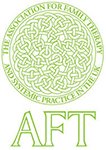Applying Family Interventions to practice with Psychosis and Bipolar Disorder
Key information
- Start date:
- To be confirmed
- Level
7 (postgraduate) - Credits
15 - Module code
NURM183
Introduction
Family Interventions for Psychosis and Bipolar Disorder: Foundation level training in Family Therapy and Systemic Practice accredited by the Association for Family Therapy (AFT) and supported by Health Education England (HEE) consists of two modules.
The first of the two being:
The second being this module:
- Applying Family Interventions to practice for Psychosis & Bipolar Disorder (NUR3319 & NURM183)
Prior to undertaking this module, you must have successfully completed Introduction to Family Interventions.
Both modules must be completed to receive accreditation with the Association of Family Therapy (Foundation level) and practice as a Family Interventions Practitioner.
Professional recognition
On successful completion of this module and the previous Introduction to Family Interventions module, the student will have completed foundation level training in Family Therapy and Systemic Practice accredited by the Association for Family Therapy (AFT) and Family Interventions for Psychosis and Bipolar disorder training supported by Health Education England (HEE).
Accreditations

Course content
- 6 taught days (online) teaching systemic & psychosocial approaches to psychosis and bipolar disorder.
- 10 x 2-hour supervision groups (online) – across the two modules.
- Assessment is in the form of a written assignment based on a clinical recording and supervisor practice-based assessment.
- Additional reading -assigned reading for each teaching day.
- Experience of working with at least two families.
Learning and teaching methods
Online teaching to include large and small group exercises, presentations, discussions and experiential exercises.
- Supported role plays
- Supervision groups
- Co-working pairs.
Assessment
Assignment based on a clinical recording, Log of practice, Case study and report from supervisor.
You will also be asked to keep a reflective diary.
Course leader

Tanya Smart
Systemic Psychotherapist
Entry requirements
- Diploma in Higher Education, Undergraduate degree or equivalent (for example nursing registration).
- Working in secondary care or specialist adult mental health services with at least two years’ experience of working with psychosis and/or bipolar disorder.
- Core mental health professional training or equivalent, for example nursing, OT, social work, clinical/counselling psychology, psychiatry, PGCE, peer support training.
- Extensive clinical practice in mental health.
- Able to actively contribute to the delivery of psychologically based interventions with people with psychosis and bipolar disorder.
- Line manager support to work with at least two families during the period of training and to deliver family interventions ongoing after completing the course.
- Line manager support to attend the teaching days and supervision sessions and to attend ongoing supervision and annual CPD to maintain practice.
- Reference from manager and clinical supervisor.
- Currently working in a role, appropriate for family interventions to be incorporated into the job description or job plan during and after training.
- You will be required to have completed statutory training such as information governance, safeguarding of adults and children and have a current DBS check
A pre-requisite of this course is completion of Introduction to Family Interventions NUR3209 & NURM123.
For successful completion of the programme all students will need to practice alongside another family worker for the practice component of the course. We recommend that the co-worker should be another student on the course from the same team or trust, so we ask applicants to apply in pairs.
Fees and funding
Fees are to be confirmed
How to apply
Please request an application form and fuller course information from: Tanya Smart - m11020@surrey.ac.uk
Applications must have the support of your NHS trust psychological lead.
Please apply to Introduction to Family Interventions in Psychosis and Bipolar Disorder (level 6 NUR3209 or level 7 NURM123) and Introduction to Family Interventions in Psychosis and Bipolar Disorder (level 6 NUR3209 or level 7 NURM123) at the same time as both modules need to be completed.
Terms and conditions
When you accept an offer of a place at the University of Surrey, you are agreeing to comply with our policies and regulations and our terms and conditions. You are also confirming you have read and understood the University's prospective student privacy notice.
If your sponsoring healthcare provider is funding you for this module, by submitting an application you agree to allow all information regarding your module (for example your exam results) to be shared with the sponsoring provider.
Cancellation policy
If you withdraw less than seven days before the module commences or do not attend on the first day (without informing the module administrator) the full cost of the module will be charged. Withdrawals after the module commences will also be charged.
Module availability
Places are confirmed approximately one month before the module start date. Please note that modules may be subject to teaching availability, student demand and/or class size caps.
Disclaimer
Modules listed are indicative, reflecting the information available at the time of publication. The University of Surrey has used its reasonable efforts to ensure that the information is accurate at the time of publishing, but changes (for example to module content) may occur given the interval between publishing and commencement of the module. It is therefore very important to check this website for any updates before you apply for a module with us. Read the full disclaimer.
Contact details
- Email: m11020@surrey.ac.uk
University of Surrey
Guildford
Surrey GU2 7XH